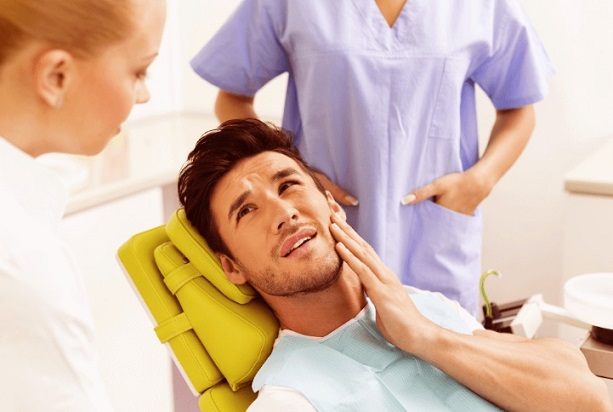Nikhil Prasad Fact checked by:Thailand Medical News Team Feb 17, 2025 1 month, 3 weeks, 3 days, 7 hours, 56 minutes ago
Thailand Dental News: Study Examines the Role of Antibiotics in Wisdom Tooth Removal
A new study conducted by researchers from UCAM-Universidad Católica San Antonio de Murcia in Spain has investigated whether taking antibiotics before wisdom tooth surgery has any real benefits. The research focused on patients undergoing the removal of impacted lower wisdom teeth, a common dental procedure often associated with pain and swelling.
 Antibiotics Do Not Significantly Improve Recovery After Wisdom Tooth Surgery
What the Study Looked At
Antibiotics Do Not Significantly Improve Recovery After Wisdom Tooth Surgery
What the Study Looked At
The study involved 18 healthy adult patients who needed their lower wisdom teeth removed. These participants were split into two groups. One group received 2 grams of amoxicillin (a common antibiotic) before the surgery, while the other group received a placebo. The goal was to see if the antibiotics made any difference in pain levels, swelling, ability to open the mouth, or the presence of infection.
This
Thailand Dental News report highlights that antibiotics are widely used in dental surgeries despite concerns about their overuse and the growing problem of antibiotic resistance. Many dentists prescribe antibiotics to prevent infections, but recent research questions whether they are truly necessary for healthy patients undergoing routine procedures like wisdom tooth removal.
What the Study Found
The results showed no significant differences between the two groups in key recovery factors. Patients who took antibiotics did not experience less pain, swelling, or difficulty in opening their mouths compared to those who took the placebo. Even the presence of an inflammatory marker called prostaglandin E2 (PGE2) in saliva, which helps measure the body's reaction to surgery, was similar in both groups.
Interestingly, only one case of infection was reported, and it occurred in a patient who did not take antibiotics. However, the difference was not statistically significant, meaning it could have been due to chance rather than the effect of antibiotics. This suggests that taking antibiotics before surgery does not necessarily provide extra protection against complications.
Factors That Influence Recovery
The study also analyzed other aspects of recovery and found some interesting patterns. Longer surgery times and more complex procedures were linked to greater swelling and difficulty in opening the mouth. Additionally, patients who required more sutures (stitches) tended to report higher pain levels. However, none of these factors were influenced by whether or not the patient took antibiotics.
Pain levels peaked in the first 48 hours and gradually decreased over the next few days, regardless of whether antibiotics were used. Similarly, swelling followed the same pattern in both groups, showing that antibiotics did not speed up the healing process.
Why This Matters
Many dentists prescribe antibiotics as a precautio
n, believing they help prevent infections and reduce post-surgical pain. However, this study adds to a growing body of evidence suggesting that antibiotics may not be necessary for every patient.
Overuse of antibiotics is a global concern because it contributes to antibiotic resistance, making bacterial infections harder to treat in the future. Experts recommend that antibiotics should only be used when there is a clear benefit, such as in patients with a higher risk of infection due to weakened immune systems or existing health conditions.
For routine dental surgeries in otherwise healthy patients, this research suggests that antibiotics do not offer significant advantages and should be prescribed with caution.
Conclusion
The findings from this study indicate that giving 2 grams of amoxicillin before wisdom tooth surgery does not significantly affect pain, swelling, infection rates, or recovery speed in healthy patients. The results support the idea that antibiotics should not be used unnecessarily, especially when alternative methods, such as proper surgical techniques and post-operative care, can help prevent complications.
Dentists and healthcare providers should carefully consider whether antibiotics are truly needed for each individual patient, rather than prescribing them automatically. Reducing unnecessary antibiotic use can help fight antibiotic resistance and ensure these medications remain effective for future generations.
The study findings were published in the peer-reviewed journal: Antibiotics.
https://www.mdpi.com/2079-6382/14/2/195
For the latest
Thailand Dental News, keep on logging to Thailand Medical News.
Read Also:
https://www.thailandmedical.news/news/bioactive-materials-in-vital-pulp-therapy-supporting-natural-tooth-repair
https://www.thailandmedical.news/news/new-advances-in-managing-tooth-decay-in-children-and-adults
https://www.thailandmedical.news/news/n-chlorotaurine-shows-promise-against-gum-disease
https://www.thailandmedical.news/pages/thailand_hospital_listings
Follow us on:
https://x.com/ThailandMedicaX
https://www.facebook.com/ThailandMedicalNews
https://bsky.app/profile/thailandmedical.bsky.social
https://gettr.com/user/thailandmedicalnews
https://www.tribel.com/thailandmedical/wall
and 33 other social media platforms
